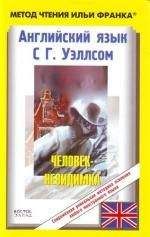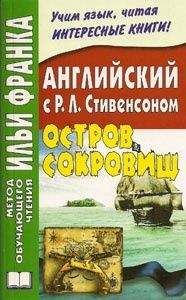“Sam’s gone out,” George said. “He’ll be back in about half an hour.”
“I’d better go up the street,” the motorman said. George looked at the clock. It was twenty minutes past six.
“That was nice, bright boy,” Max said. “You’re a regular little gentleman.”
“He knew I’d blow his head off,” Al said from the kitchen.
“No,” said Max. “It ain’t that. Bright boy is nice. He’s a nice boy. I like him.”
depend [dI'pend] regular [' [email protected]]
At six-fifty-five (в шесть /часов/ пятьдесят пять) George said: “He’s not coming (он не придет).”
Two other people had been in the lunch-room (двое других людей побывали в закусочной). Once (один раз) George had gone out to the kitchen and made a ham-and-egg sandwich “to go” (на вынос) that a man wanted to take with him (который человек хотел взять с собой). Inside the kitchen he saw Al (внутри кухни он увидел Эла), his derby hat tipped back (его котелок /был/ сдвинут назад; to tip — наклонять/ся/; запрокидываться), sitting on a stool beside the wicket (сидящим на табурете возле окошечка) with the muzzle (с дулом; muzzle — морда; дуло) of of a sawed-off shotgun (отпиленного ружья = обреза) resting (лежащим, покоящимся) on the ledge (на планке, краю /окошечка/). Nick and the cook were back in the corner (в углу), a towel tied in each of their mouths (полотенце, завязанное = заткнутое в каждом из их ртов = во рту у каждого). George had cooked the sandwich, wrapped it up in oiled paper (завернул его в пергаментную бумагу; oil — растительное или минеральное масло; oiled — пропитанный маслом, промасленный), put it in a bag (положил его в пакет), brought it in (вынес из кухни, занес в комнату), and the man had paid for it (заплатил за него) and gone out.
“Bright boy can do everything (все умеет: «может делать все»),” Max said. “He can cook and everything. You’d make some girl a nice wife (ты бы сделал какую-нибудь девушку славной женой = повезло твоей будущей жене), bright boy.”
“Yes?” George said. “Your friend (ваш друг), Ole Andreson, isn’t going to come (не придет).”
“We’ll give him ten minutes (мы дадим ему десять минут),” Max said.
Max watched the mirror and the clock. The hands of the clock marked seven o’clock (стрелки часов показали семь), and then five minutes past seven (а затем пять минут после семи = пять минут восьмого).
At six-fifty-five George said: “He’s not coming.”
Two other people had been in the lunch-room. Once George had gone out to the kitchen and made a ham-and-egg sandwich “to go” that a man wanted to take with him. Inside the kitchen he saw Al, his derby hat tipped back, sitting on a stool beside the wicket with the muzzle of of a sawed-off shotgun resting on the ledge. Nick and the cook were back in the corner, a towel tied in each of their mouths. George had cooked the sandwich, wrapped it up in oiled paper, put it in a bag, brought it in, and the man had paid for it and gone out.
“Bright boy can do everything,” Max said. “He can cook and everything. You’d make some girl a nice wife, bright boy.”
“Yes?” George said. “Your friend, Ole Andreson, isn’t going to come.”
“We’ll give him ten minutes,” Max said.
Max watched the mirror and the clock. The hands of the clock marked seven o’clock, and then five minutes past seven.
“Come on (да ладно, давай), Al,” said Max. “We better go. He’s not coming.”
“Better give him five minutes,” Al said from the kitchen.
In the five minutes a man came in, and George explained that the cook was sick (объяснил, что повар болен).
“Why don’t you get another cook (почему же вы не возьмете другого повара)?” the man asked.
“Aren’t you running a lunch-counter (разве вы не держите закусочную)?” He went out.
“Come on, Al,” Max said.
“What about (а что насчет, а как с) the two bright boys and the nigger?”
“The’re all right (пусть их: «они в порядке, нормально»).”
“You think so (ты так полагаешь)?”
“Sure. We’re through with it (здесь уже все /закончено/: «мы /уже/ сквозь, через это»).”
“I don’t like it (мне это не нравится),” said Al. It’s sloppy (нечистая работа; slop — жидкая грязь; sloppy — покрытый лужами; неряшливый, небрежный). You talk too much (ты слишком много болтаешь).”
“Oh, what the hell,” said Max. “We got to keep amused, haven’t we?”
“You talk too much, all the same (все равно),” Al said. He came out from the kitchen. The cut-off barrels of the shotgun (обрезанные стволы ружья) made a slight bulge (делали легкую выпуклость) under the waist of his too tight-fitting overcoat (под талией = на боку его слишком узкого пальто). He straightened his coat (он одернул свое пальто) with his gloved hands.
“So long (прощай, пока), bright boy,” he said to George. “You got a lot of luck (везет тебе: «имеешь много удачи, большую удачу»).”
“That’s the truth (это правда),” Max said. You ought to play the races (тебе надо бы играть на скачках), bright boy.”
The two of them went out the door. George watched them, through the window, pass under the arc-light (как они прошли под /дуговым/ фонарем; arc — /электрическая/ дуга) and cross the street (и пересекли улицу). In their tight overcoats and derby hats they looked like a vaudeville team (на водевильную команду, на эстрадную пару). George went back through the swinging-door (через вращающуюся, двустворчатую, открывающуюся в обе стороны дверь) into the kitchen and untied (развязал) Nick and the cook.
“Come on, Al,” said Max. “We better go. He’s not coming.”
“Better give him five minutes,” Al said from the kitchen.
In the five minutes a man came in, and George explained that the cook was sick.
“Why don’t you get another cook?” the man asked.
“Aren’t you running a lunch-counter?” He went out.
“Come on, Al,” Max said.
“What about the two bright boys and the nigger?”
“The’re all right.”
“You think so?”
“Sure. We’re through with it.”
“I don’t like it,” said Al. It’s sloppy. You talk too much.”
“Oh, what the hell,” said Max. “We got to keep amused, haven’t we?”
“You talk too much, all the same,” Al said. He came out from the kitchen. The cut-off barrels of the shotgun made a slight bulge under the waist of his too tight-fitting overcoat. He straightened his coat with his gloved hands.
“So long, bright boy,” he said to George. “You got a lot of luck.”
“That’s the truth,” Max said. You ought to play the races, bright boy.”
The two of them went out the door. George watched them, through the window, pass under the arc-light and cross the street. In their tight overcoats and derby hats they looked like a vaudeville team. George went back through the swinging-door into the kitchen and untied Nick and the cook.
vaudeville [' [email protected]@vIl]
“I don’t want any more of that (я не хочу больше ничего подобного = с меня довольно),” said Sam, the cook. “I don’t want any more of that.”
Nick stood up (встал). He had never had a towel in his mouth before (он никогда раньше не имел полотенца во рту).
“Say (послушай: «скажи»),” he said. “What the hell?” He was trying to swagger it off (он пытался отмахнуться от этого /от происшедшего/, сделать вид, что ему все нипочем; to swagger — расхаживать с важным видом; чваниться; хвастать).
“They were going to kill Ole Andreson,” George said. “They were going to shoot him (они собирались застрелить его) when he came in to eat.”
“Ole Andreson?”
“Sure.”
The cook felt the corners of his mouth with his thumbs (потрогал углы своего рта большими пальцами; to feel — чувствовать; ощупывать).
“They all gone?” he asked.
“Yeah,” said George. “They’re gone now (они теперь все ушли).”
“I don’t like it,” said the cook. “I don’t like any of it at all.”
“Listen,” George said to Nick. “You better go see Ole Andreson.”
“All right.”
“You better not have anything to do with it at all (лучше не связывайся: «не имей никакого дела с этим всем»),” Sam, the cook, said. “You better stay way out of it (лучше держись подальше от этого: «оставайся прочь, вне этого»).”
“Don’t go if you don’t want to (не ходи, если не хочешь),” George said.
“Mixing up in this (вмешиваясь в это, вмешательство в это) ain’t going to get you anywhere (никуда тебя не приведет = ни к чему хорошему не приведет),” the cook said. “You stay out of it.”
“I’ll go see him,” Nick said to George. “Where does he live (где он живет)?”
The cook turned away (отвернулся).
“Little boys always know what they want to do (маленькие мальчики всегда знают, что они хотят делать),” he said.
“He lives up (вверх по улице) at Hirsch’s rooming-house (в меблированных комнатах Хирш),” George said to Nick.
“I’ll go up there.”
“I don’t want any more of that,” said Sam, the cook. “I don’t want any more of that.”
Nick stood up. He had never had a towel in his mouth before.
“Say,” he said. “What the hell?” He was trying to swagger it off.
“They were going to kill Ole Andreson,” George said. “They were going to shoot him when he came in to eat.”
“Ole Andreson?”
“Sure.”
The cook felt the corners of his mouth with his thumbs.
“They all gone?” he asked.
“Yeah,” said George. “They’re gone now.”
“I don’t like it,” said the cook. “I don’t like any of it at all.”
“Listen,” George said to Nick. “You better go see Ole Andreson.”
“All right.”
“You better not have anything to do with it at all,” Sam, the cook, said. “You better stay way out of it.”
“Don’t go if you don’t want to,” George said.
“Mixing up in this ain’t going to get you anywhere,” the cook said. “You stay out of it.”
“I’ll go see him,” Nick said to George. “Where does he live?”
The cook turned away.
“Little boys always know what they want to do,” he said.
“He lives up at Hirsch’s rooming-house,” George said to Nick.
“I’ll go up there.”
thumb [TVm]
Outside the arc-light shone through the bare branches of a tree (на улице дуговой фонарь светил сквозь голые ветки дерева). Nick walked up the street beside the car-tracks (возле трамвайных путей) and turned at the next arc-light down a side-street (и свернул у следующего фонаря в боковую улицу, в переулок). Three houses up the street (через три дома) was Hirsch’s rooming-house. Nick walked up the two steps (поднялся на две ступеньки) and pushed the bell (и надавил кнопку звонка). A woman came to the door.
“Is Ole Andreson here?”
“Do you want to see him?”
“Yes, if he’s in (если он дома).”
Nick followed the woman up a flight of stairs (последовал за женщиной вверх по пролету лестницы) and back to the end of a corridor. She knocked on the door (она постучала в дверь).



